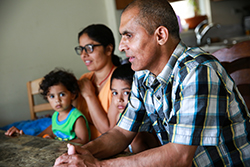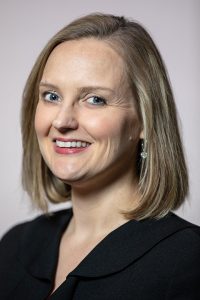Following are updates shared from submissions of the Lutheran Office for World Community and state public policy offices.
U.N. | Arizona | Colorado | Minnesota | New Mexico| Ohio | Pennsylvania | Texas | Washington | Wisconsin
Lutheran Office for World Community, United Nations, New York, N.Y. ELCA.org/lowc
Dennis Frado, director
UNITED NATIONS GENERAL ASSEMBLY: The UN General Assembly High Level week which ushers in the annual General Debate will take place from 22nd to 29th September 2020. Due to the ongoing COVID-19 pandemic, there are limitations on holding large in-person meetings and for the first time since the founding of the UN, world leaders will not gather in person in New York. Heads of State and Government or Ministers representing Member States have been requested to address the General Debate via pre-recorded video statements. However, some may disregard this request and attend in person. The UN is otherwise limiting in person attendance to delegates and staff with a direct role in a given meeting. Attendees will be required to wear face masks except when directly addressing a meeting.
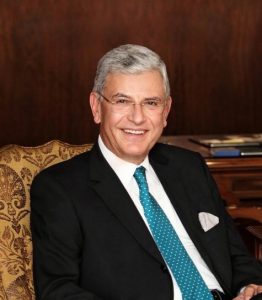 H.E. Mr. Volkan Bozkir (left), incoming President of the General Assembly, will preside over the 75th session. Mr. Bozkir is a former Member of the Turkish Parliament where he served as chair of the Foreign Affairs Committee for several years. He also served as Turkey’s Permanent Representative to the European Union.
H.E. Mr. Volkan Bozkir (left), incoming President of the General Assembly, will preside over the 75th session. Mr. Bozkir is a former Member of the Turkish Parliament where he served as chair of the Foreign Affairs Committee for several years. He also served as Turkey’s Permanent Representative to the European Union.
There are several high-level meetings scheduled to take place virtually:
LWF APPEAL FOR DR. DENIS MUKWEGE: In late August, the Rev. Dr. Martin Junge, General Secretary of the Lutheran World Federation (LWF), sent an urgent appeal to the United Nations for the safety of Dr. Denis Mukwege. In a 25th August letter to UN Secretary-General António Guterres, Junge said the LWF “is very concerned about the safety and wellbeing of Dr Denis Mukwege, 2018 Nobel Peace Prize laureate and Founder and Medical Director of Panzi Hospital in the Democratic Republic of the Congo (DRC).” Junge cited threats against Dr Mukwege and his family that are available in the public domain. Junge expressed alarm about “the risks posed by the withdrawal of the security service that was provided until recently by the United Nations Organization Stabilization Mission in the Democratic Republic of the Congo (MONUSCO).”
“Dr Mukwege’s work in defense of human rights and holistic care of women affected by sexual and gender-based violence is recognized globally. He is a beacon of hope for all, and especially the most vulnerable populations who have borne the brunt of violence and conflicts. He is a global leader and human rights defender. He has continued to speak out against impunity and demanded accountability, particularly through the implementation of the recommendations of the 2010 report: DRC: Mapping human rights violations.”
While welcoming the fact “that the Congolese government has offered to provide National Police services to protect Dr Mukwege”, Junge said he firmly believes “that this approach is inadequate because the capacity and the reliability of the Congolese police cannot be ascertained.”
LOWC conveyed the letter to the Secretary-General’s office on behalf of the LWF.
Arizona
Solveig Muus, Lutheran Advocacy Ministry Arizona https://lamaz.org/
ARIZONA ELECTIONS AND CENSUS: For the next 60 days, the 2020 election is a Lutheran Advocacy Ministry Arizona (LAMA) priority. We are partnering with other Arizona faith-based advocates to emphasize the importance of voting, particularly in low-income neighborhoods where statistics indicate both 2016 voter turnout was low, and 2020 Census reporting is low as well. We also are preparing a voting toolkit for congregations.
LAMA is continuing its survey of the 85 Lutheran congregations in Arizona and building our network. A common thread our church leaders have identified is a desire for education and resources to help them demonstrate in a visceral way the direct correlation between being people of faith and advocating for the common good. This is one way LAMA hopes to serve to our congregations.
LAMA SUMMIT: LAMA’s policy team is planning its LAMA SUMMIT, the first state-wide gathering of Lutheran advocates and friends since the LAMA office opened its doors in February. Keynote speaker for this 3-hour virtual event on November 7 is Dr. Ryan Cumming program director for hunger education at ELCA World Hunger.
Since we last reported, LAMA has launched the Lutheran Advocacy Ministry Arizona website at www.lamaz.org and also published a weekly newsletter, subscribers welcome!
Our heartfelt thanks to all our Lutheran state public policy offices for their help and counsel as the Arizona team gets up and running. We are blessed!
Colorado
Peter Severson, Lutheran Advocacy Ministry-Colorado lam-co.org
FALL BALLOT QUESTIONS ARE SET: The Colorado Secretary of State has affirmed eleven – that’s right, eleven – questions for the November statewide ballot. All Coloradans will have the opportunity to weigh in on major issues impacting our state’s public policy. The LAM-CO Policy Committee will be meeting in early September to decide on the positions we will take, if any, on these measures.
One measure we are already supporting is Proposition 118, Paid Family & Medical Leave. This program would give workers across Colorado access to paid leave in the event of serious medical or family issues, ensuring that people are able to maintain some income and lessen the risk of losing their job. The Colorado Families First Coalition is supporting this measure – join us and learn more at http://www.coloradofamiliesfirst.org/.
Other issues on the ballot include state income tax, property tax, the National Popular Vote Compact, abortion, gray wolves, tobacco taxes, and gambling. Look for more information from Lutheran Advocacy in the next few weeks, including our annual Voter Guide!
LIVING FAITH: The Rocky Mountain Synod is pleased to offer a new curriculum, Living Faith: Church in Society, to help spark rich conversations about our Lutheran faith and social issues. ELCA Social Statements form the backbone of our policy advocacy. These deep resources are the springboard for reflections from voices around our Synod on timely issues, including scripture, prayer, and guided discussion questions. Check it out today!
Minnesota
Tammy Walhof, Lutheran Advocacy- Minnesota (LA-MN) lutheranadvocacymn.org
HEALTH EMERGENCY: Governor Walz extended the emergency allowing him executive powers impacting businesses, physical distancing, and mask-wearing. After each extension, the legislature must meet, but both chambers much vote to end the emergency. Legislators pushing to end the emergency are mostly rural and primarily see economic impacts of closed or modified business operations. Legislators from bigger communities (more COVID-19 victims) tend to vote to continue the emergency. [Having been diagnosed with presumptive COVID five months ago, I continue to experience long-term respiratory and fatigue issues despite no pre-existing conditions, and wish legislators better understood long-term health impacts on economics. -TW]
SPECIAL SESSION #3: Minnesota Management & Budget Agency (MMB) interprets SEC rules to discourage or prohibit enactments changing state financials (including appropriations/bonds/taxes) as Minnesota goes to bond markets to sell previously authorized bonds. So, bonding must wait until the end of September to pass. In the August session, the House gaveled in & out, allowing the emergency to continue. However, the Senate unexpectedly fired the governor’s commissioner of Labor & Industry (message to the governor regarding the emergency?).
Some LA-MN partners believe September’s special session will involve postponing until late September when bonding can again be considered. Others hope the governor and MMB will take another look at whether the law actually requires ongoing special sessions during the emergency.
HOUSING: We continue to work to pass bonding for affordable housing. See our website for current talking points.
RENEWABLE ENERGY/CLIMATE CHANGE: Environmental partners are generating the best project list for a 2021 bonding bill (assuming 2020 is lost). LA-MN (with various partners) will work to educate about Minnesotans impacted by climate, and how renewable energy is growing Minnesota’s economy. Watch ELCA Advocacy & LA-MN for upcoming trainings. Check with Tammy for specific action needed in your community.
[LA-MN Director: Tammy Walhof / 651-238-6506 (call/text) / tammy@lutheranadvocacymn.org. Website: www.lutheranadvocacymn.org]
NEW MEXICO
Kurt A. Rager, Lutheran Advocacy Ministry-NM lutheranadvocacynm.org
State-wide and Diverse Coalitions are Crucial to our Work! LAM-NM has historically been an  active part of a variety of state-wide coalitions which directly connect to the priorities of our annual policy agenda. During the months between legislative sessions,
active part of a variety of state-wide coalitions which directly connect to the priorities of our annual policy agenda. During the months between legislative sessions, 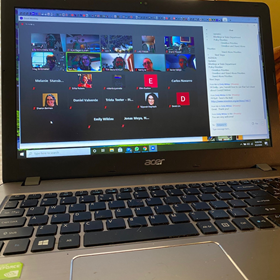 LAM-NM actively participates with coalitions focused on the issues of hunger, housing insecurity, criminal justice reform, ethics in government, healthcare, early childhood education, and immigrant justice, just to name a few. An example is LAM-NM’s participation with the Food, Hunger, Water, Agriculture Policy and Action Team convened by New Mexico First. This coalition, a bipartisan group of legislators, emergency food sector, farmers, ranchers, resilient agriculture advocates, faith communities, anti-hunger and anti-poverty advocates, human rights advocates, health providers and advocates, local food system advocates, researchers, philanthropy, and more has been meeting weekly to prioritize and coordinate policy efforts and put forward a policy agenda and legislation for the upcoming 2021 legislative session. Members of the policy and advocacy team, including LAM-NM director, Kurt Rager, have met weekly during the month of August. Our most recent meeting took place on August 27th.
LAM-NM actively participates with coalitions focused on the issues of hunger, housing insecurity, criminal justice reform, ethics in government, healthcare, early childhood education, and immigrant justice, just to name a few. An example is LAM-NM’s participation with the Food, Hunger, Water, Agriculture Policy and Action Team convened by New Mexico First. This coalition, a bipartisan group of legislators, emergency food sector, farmers, ranchers, resilient agriculture advocates, faith communities, anti-hunger and anti-poverty advocates, human rights advocates, health providers and advocates, local food system advocates, researchers, philanthropy, and more has been meeting weekly to prioritize and coordinate policy efforts and put forward a policy agenda and legislation for the upcoming 2021 legislative session. Members of the policy and advocacy team, including LAM-NM director, Kurt Rager, have met weekly during the month of August. Our most recent meeting took place on August 27th.
OHIO
Deacon Nick Bates, Hunger Network in Ohio hungernetohio.com
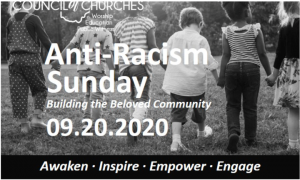 ANTI-RACISM SUNDAY, SEPT. 20th : On September 20th, HNO will join with the Ohio Council of Churches and faith communities throughout Ohio and participate in an Anti-racism Sunday. Racial injustice continues to hold our communities in bondage to sin. We encourage congregations to engage on Sept 20th (or another date that fits for your congregation) in a service to center our spiritual communities on how God is calling us to respond to racial injustice. You can access resources on the Ohio Council of Churches website and register your congregation’s participation! This builds on HNO’s advocacy work to advance racial justice throughout Ohio.
ANTI-RACISM SUNDAY, SEPT. 20th : On September 20th, HNO will join with the Ohio Council of Churches and faith communities throughout Ohio and participate in an Anti-racism Sunday. Racial injustice continues to hold our communities in bondage to sin. We encourage congregations to engage on Sept 20th (or another date that fits for your congregation) in a service to center our spiritual communities on how God is calling us to respond to racial injustice. You can access resources on the Ohio Council of Churches website and register your congregation’s participation! This builds on HNO’s advocacy work to advance racial justice throughout Ohio.
RACIAL JUSTICE AND PUBLIC HEALTH: Declare racism a public health crisis in Ohio. Ohio’s legislature is looking into how racial injustice impacts public health. In Ohio, hunger, infant mortality, and covid-19 cases have hit the African American community hard. We need to break down systemic racism and understand how we can address these issues. Contact your state legislative leaders and tell them to hold hearings and begin to investigate these issues by clicking here
Pennsylvania
Tracey DePasquale, Lutheran Advocacy Ministry–Pennsylvania (LAMPa) lutheranadvocacypa.org
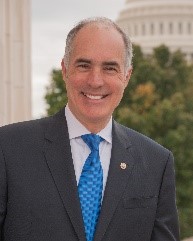 LAMPA CONSTITUENTS, FAITH-BASED PARTNERS SHARE CONVERSATION WITH SEN. ROBERT CASEY: More than 60 people participated in a virtual town hall on the federal response to COVID-19. Participants were invited to share questions for the senator. Topics discussed included COVID unemployment; the disproportionate impact of COVID on black and brown populations; childhood hunger and the extension of nutrition benefits, and concerns about the U.S. Postal Service.
LAMPA CONSTITUENTS, FAITH-BASED PARTNERS SHARE CONVERSATION WITH SEN. ROBERT CASEY: More than 60 people participated in a virtual town hall on the federal response to COVID-19. Participants were invited to share questions for the senator. Topics discussed included COVID unemployment; the disproportionate impact of COVID on black and brown populations; childhood hunger and the extension of nutrition benefits, and concerns about the U.S. Postal Service.
CHILD NUTRITION ADVOCACY YIELDS SOME GOOD NEWS: As one in six children in PA experience food insecurity, we are pleased the USDA is extending free meals for children through Dec. 31, and will continue to allow summer meal program operators to serve free meals to all children into the fall months. LAMPa advocates had been petitioning for the waivers and will continue pressing for funding to ensure nutrition support for the entire school year.
CREATION JUSTICE: LAMPa voiced opposition to state House and Senate bills aimed at stripping the power of the Department of Environmental Protection to enact a carbon reduction program such as the Regional Greenhouse Gas Initiative.
PA EVICTION MORATORIUM ENDS: Gov. Wolf is urging the state legislature to improve rental and mortgage assistance programs. LAMPa and Lutheran Disaster Response have been warning officials of potential for a surge in homelessness based on the witness of our ministries in their communities.
PROMOTING SAFE, SECURE ELECTIONS: LAMPa is encouraging disciples who can safely do so to register as poll workers in PA, as many volunteers are older, and at higher-risk from COVID-19. LAMPa continues to remind constituents of the deadlines for mail-in and absentee ballot applications and oppose legislative attempts to create barriers to voter access and timely ballot counting.
HATE CRIME LEGISLATION: As incidents of hate crime increase throughout the Commonwealth, LAMPa continues to promote legislation as part of the Pa. Coalition Against Hate.
 |
LAMPa is pleased to be part of ULS
Seminarian Margaret Folkemer-Leonard’s
learning community.
|
SEMINARIAN JOINS LAMPA: Margaret Folkemer-Leonard will be serving with LAMPa and St. Matthew, York, as part of her education at United Lutheran Seminary. She hopes to focus on educational advocacy as social justice related to the service of York area congregations. Learn more.
GOD’S WORK. OUR HANDS: LAMPa shared resources with congregations adding advocacy to their service on Sept. 13.
Texas
Bee Moorhead, Texas Interfaith Center for Public Policy texasimpact.org
TEXAS VOTING AND ELECTIONS: Texas Impact members have been busy this week participating in legislative meetings and preparing for safe, accountable voting in 2020.
In July, Texas Impact re-launched our Faith in Democracy series of local advocacy trainings online, and hosted an event August 23 in Dallas. The Northern Texas-Northern Louisiana Synod co-sponsored the event, and Bishop Gronberg was be a featured speaker at an event with 350 registrants. Two events are scheduled for September in Houston (September 13) featuring Bishop Michael Rinehart, and Corpus Christi (September27). Each event will include a faith and community leader panel and tools to equip congregations to be effective advocates and promote safe, accountable voting.
Texas Impact’s Legislative Engagement Groups are meeting with members of the Texas House’s district offices this month about the moral nature of the budget, discussing possible revenue options to fund important state priorities.
Texas Impact is continuing to promote the “Texas Faith Votes” campaign, encouraging congregations to promote four components: completing the safe and accountable voting checklist, encouraging mail in voting and signing the accountable Pledge to Vote prioritizing health, immigration, climate and a rejection of discrimination and recruiting election workers.
RACIAL JUSTICE AND ADVOCACY: Texas Impact continued the Weekly Witness podcast series featuring speakers from the Washington Interfaith Staff Community and has added a racial justice series featuring clergy of different races discussing racial justice and advocacy.
CLIMATE AND OTHER ADVOCACY: Climate advocacy was a priority in August with advocates meeting with members of Congress during the August recess. Texas Impact is also partnering with Texas Interfaith Power and Light to map Houston-area congregations engaged in environmental justice work.
Texans of faith are mobilizing and engaging for a busy fall of civic engagement, and Lutheran leaders are playing a key role.
Washington
The Rev. Paul Benz and Elise DeGooyer, Faith Action Network fanwa.org
REFERENDUM 90: The Faith Action Network Governing Board has unanimously endorsed Referendum 90 for Safe and Healthy Youth. This will appear on the November ballot in Washington State as a comprehensive sexuality education measure which is age-appropriate and inclusive. During the 2020 legislative session, a coalition of parents, educators, medical professionals, and advocates passed SB 5395 (Sen. Claire Wilson) in Washington State that mandates sex education in our public schools. Those opposed to the bill, sometimes citing religious reasons, have launched a misinformation campaign and gathered enough signatures to put that law up for a public vote this November, so FAN is working in coalition to show strong support from interfaith communities around the state. See more at the campaign’s website approve90wa.org and our Faith Leaders Statement.
INDIGENOUS FILM FESTIVAL: FAN coordinates the Interfaith Network for Indigenous Communities (INIC), a coalition of interfaith leaders seeking solidarity between first nations peoples and allied people of faith as we confront the urgent issues of our time. INIC is co-sponsoring the first online Indigenous Film Festival from August 31 – October 5, celebrating American Indian, Alaska Native, and worldwide Indigenous films, featuring new films each week and opportunities for discussion with filmmakers. Check out this amazing opportunity here: visionmakermedia.org/online-filmfest/
STATE AND BUDGET COALITIONS: Washington State is anticipating a $9B budget deficit into the next biennium. FAN is encouraging advocates to urge their legislators not to cut vital programs, to protect those already impacted by the economic recession and COVID-19, and to pass significant revenue solutions such as eliminating the capital gains tax loophole and adding other wealth taxes. Co-Director Paul Benz is working on multiple coalitions to influence this goal, including pushing for the now-approved $40M Undocumented Worker Relief Fund, funding the Working Families Tax Credit, and working on policing reforms through the Governor’s taskforce and the Washington Coalition for Police Accountability (WCPA).
Wisconsin
The Rev. Cindy Crane, Lutheran Office for Public Policy in Wisconsin (LOPPW) loppw.org
RACIAL JUSTICE: We sent out an action alert about supporting police reform in response to the shooting of Jacob Blake and an Executive Order from Governor Evers. https://support.elca.org/site/Advocacy?cmd=display&page=UserAction&id=1292&fbclid=IwAR2C5b1rRiUxcMVngDLCTNvuG-HCwxQawzDl5wOOiBAMKe7q1Cyz9PzveRg
THE PANDEMIC AND OUR HEALTH: For Wednesday Noon Live, we interviewed Madison’s Reverend Blake Rohrer, who gave a theological perspective on the state mask mandate; Green Bay Alderwoman Barbara Dorff, who discussed the death threats to the City Council after issuing a local mandate (before the state mandate) and future hopes; LOPPW Council Member Mr. William Mattson of Immanuel Lutheran Church in Rhinelander, who responded to local issues with masks. https://www.facebook.com/LOPPW/videos/303241814223287
IMMIGRATION AND DETENTION: We taped Wednesday Noon Live for Sept (it is usually live). We interviewed Attorney Mary Campbell, AMMPARO; Ms. Marisol Fuentes de Dubon, GMS Task Force & Detained Migrant Project; and Dr. Stephanie Mitchell, Professor of Latin American History at Carthage College & Emmaus Lutheran Church (Racine) member. They shared practical ideas about what congregations can do.
CARE FOR GOD’S CREATION: Our LOPPW statewide climate task force met for the second time after the listening sessions to strategize. The director participated in a briefing on a Climate Action Plan convened by the Dane County Executive.
VOTING: Created a video on Caring for God’s Creation and voting with Intern Kyle. Contacted Brookfield’s clerk to ask questions about absentee ballots as part of our voting coalition’s effort to survey municipalities. Participated in a panel for a webinar on voting organized by Ms. Kelly Marciales and Rev. Amy Reumann.
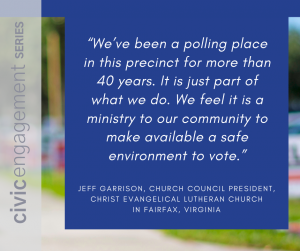 Experience during primary elections in our nation have led some to conclude more polling places are needed before the November 3, 2020 general election. Myrna Perez, director of the voting rights and elections program at the Brennan Center for Justice at NYU School of Law, is quoted in an AP news article saying, “In the best of times, really long lines are deterring and disenfranchising. In the time of the coronavirus, long lines can be deadly.”
Experience during primary elections in our nation have led some to conclude more polling places are needed before the November 3, 2020 general election. Myrna Perez, director of the voting rights and elections program at the Brennan Center for Justice at NYU School of Law, is quoted in an AP news article saying, “In the best of times, really long lines are deterring and disenfranchising. In the time of the coronavirus, long lines can be deadly.”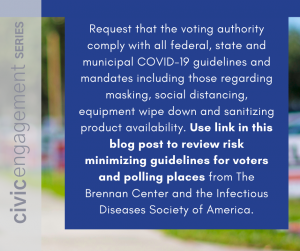 Uniquely this year, being a polling place means observing best practices in this time of pandemic. Request that the voting authority comply with all federal, state and municipal COVID-19 guidelines and mandates including those regarding masking, social distancing, equipment wipe down and sanitizing product availability. Guidelines to minimize the risk of transmitting COVID-19 at the polls are discussed in a joint release from The Brennan Center and the Infectious Diseases Society of America.
Uniquely this year, being a polling place means observing best practices in this time of pandemic. Request that the voting authority comply with all federal, state and municipal COVID-19 guidelines and mandates including those regarding masking, social distancing, equipment wipe down and sanitizing product availability. Guidelines to minimize the risk of transmitting COVID-19 at the polls are discussed in a joint release from The Brennan Center and the Infectious Diseases Society of America.









